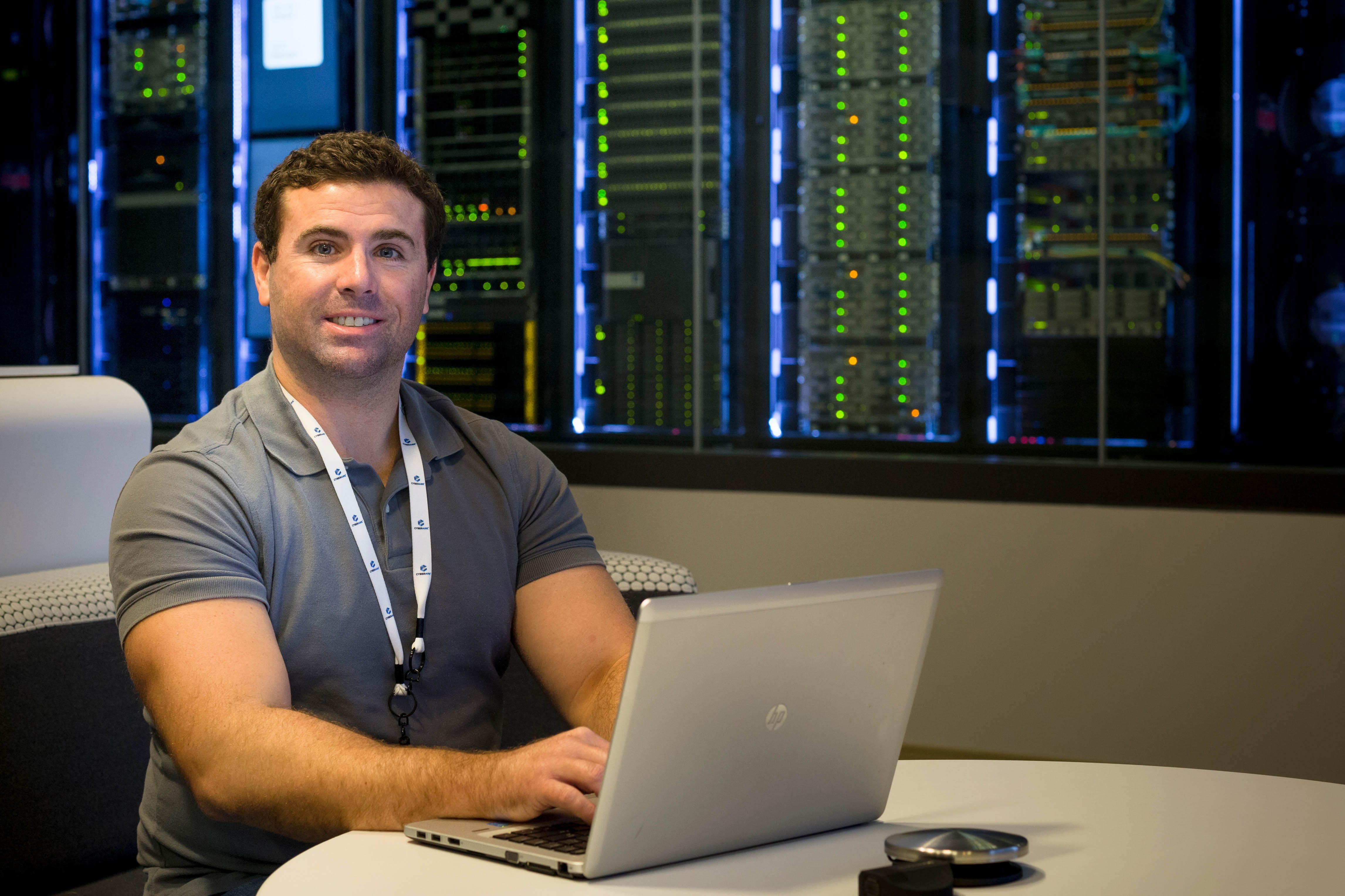Reading time: 2 minutes
When Jake Simino, ’15, was a teenager in the 1990s, he loved to take apart computers to reconfigure video games like Half-Life and Counterstrike.
“My friends and I spent a lot of weekends hanging out in each other’s basements,” Simino says. “We were the dorks of our high school.”
Today, Simino still works with computerized systems, but his job is no game — he safeguards important information. After graduating from Maryville with a BS in cyber security from the John E. Simon School of Business, Simino landed an associate information security analyst position at World Wide Technology, where he had interned his senior year. The St. Louis-based company provides technology and supply-chain solutions to clients in the federal government, educational arenas and the healthcare industry, among other fields.
In his role in identity and access management, Simino helps tailor appropriate systems gateways for World Wide Technology employees.
Simino enjoys the challenge of tracking down leads and fixing the problem, and views every situation as a chance to discover something new.
“Say you are a new hire here: we make sure you’re not going to have access to a critical server that may have customer credit card information,” Simino says. “But along with proper segmentation, we want to make sure our users have the access they need.”
A portion of Simino’s work deals with network security and investigation. Issues can arise from a malware invasion or theft of an employee’s credentials. He enjoys the challenge of tracking down leads and fixing the problem, and views every situation as a chance to discover something new.
“Anything I can learn in cyber security, or in general, I really get a kick out of it,” Simino says.
Simino enrolled at Maryville following an eight-year stint as a Navy Seabee. The military, says the veteran, provided him the discipline to be able to work full-time and go to school and complete his degree.
“What I enjoyed most about Maryville was the real-world experience of the faculty, including a professor who was working for the U.S. Department of Defense,” Simino says. “He and others brought in their knowledge and experience and let us know what to expect in the field.”
 Jake Simino.H
Jake Simino.H